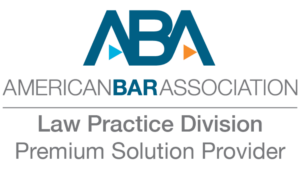What Is the Difference Between Sales and Business Development?
The terms “business development” and “sales” are sometimes used interchangeably by organizations or individuals, yet the two roles do not always represent the same functions. Although the goals of both overlap frequently, each respective term should be viewed as a separate role that contributes to business growth in different ways. The article below is meant to define the two like-minded terms, explain their differences and overlap, and offer insight into their corresponding importance.
Business Development Definition
Business development refers to methodologies used to improve an organization. Business development professionals look at different areas in a business that are less than optimal and make changes accordingly. The specifics of a business development role can look different between industries or organizations, but it generally consists of identifying, attracting, communicating, and obtaining new markets/clients and approaches.
Unlike sales, business development is generally involved heavily with potential partners and other businesses instead of direct contact with customers or clients. Business development is concerned with long-term organizational success and providing innovative, optimized methodologies for achieving that success. Many roles within an organization may represent a continuation of business development efforts — for instance, different managerial roles.
Business Development Roles and Requirements
The core focus of a business developer is growing business. As mentioned above, the exact day-to-day tasks for an individual in a business development role can vary between organizations, but the general premise remains the same — business development roles focus on:
- Managing, retaining, and building relationships with clients;
- Creating, planning, preparing, and presenting various product/service demonstrations;
- Improving or building trust with current clients;
- Establishing in-depth knowledge of business offerings;
- Communicating product development;
- Improving overall organization awareness and daily operations;
- Communicating with co-workers and management to provide feedback and explain changes;
- Recruiting new clients and targeting different markets.
Business development roles generally require some form of a business degree, but the educational requirements can vary between organizations or jobs. There are specific skills that are crucial for success in such a role. An individual looking to work in a business development role should have (or develop) the following skills:
- Sales;
- Communication;
- Marketing;
- Business intelligence;
- Data analysis;
- Project management.
Sales Definition
A “sale” is a transaction between two or more parties where the buyer receives either goods, services, or assets in exchange for monetary compensation. “Sales” refer to the efforts used by an individual (or organization) to facilitate the transaction. While sales are naturally a key element of overall business success, someone focused on sales development tends to have a more focused, specialized role and set of responsibilities than the more all-encompassing business developer role. Some businesses have one specific person that specializes in sales while others have entire teams. Some sales roles are responsible for finding their leads and closing the deal, while other sales professionals gather their leads from lead generation services.
Sales Roles and Requirements
There can be minor changes between organizations or specific jobs, but the day-to-day tasks for a sales role are generally:
- Bring in clients;
- Guide clients through the buyer’s journey;
- Sell a product or service.
The roles and requirements for a sales professional can also fluctuate depending on the type of sales that your organization participates in. Some examples of sales types include:
- Inside sales: Inside salespeople facilitate sales remotely using some form of telecommunication. A good example of this is a telemarketing role;
- Outside sales: Outside salespeople execute sales face-to-face. They generally travel to the customer instead of the other way around. A good example of this is a door-to-door sales role;
- B2B sales: Business-to-business salespeople sell their products or services to other businesses instead of directly to consumers. A good example of this is a paper sales role;
- B2C sales: Business-to-consumer salespeople sell their products or services directly to consumers. A good example of this is a mattress sales role;
- eCommerce: eCommerce sales methods are carried out exclusively online. A good example of this is an online clothing retail role;
- Direct Sales: Direct sales are sales that are completed outside of a traditional retail environment. A good example of this is a real estate role.
Sales professionals need to constantly be looking for ways to improve lead generation and retention. Without leads, it can be difficult to facilitate sales. A salesperson needs to be innovative and must be unafraid to try several different lead retention methods — even cold calling. If an organization is failing to gather or retain leads, it can be the result of a poor salesperson or failure to utilize all the resources available to them. Some particular traits and characteristics make up a good sales professional. A good salesperson should be proficient in — or aim to improve — the following qualities and skills for success within their role:
- Empathy;
- Drive;
- Competitiveness;
- Self-efficacy;
- Networking;
- Confidence;
- Creativity;
- Enthusiasm;
- Resilience;
- Tough-skin;
- Communication;
- Patience;
- Quick-thinking;
- Charm;
- Persuasion;
- Ambitious;
- Imagination;
- Initiative;
Overlap Between Sales and Business Development
“Sales” and “business development” are often used interchangeably because the two roles are heavily involved with one another. Sales are key to overall business success, and business development may well require a change or increase in sales strategies to support growth or achieve other development goals.
For both respective roles to function at their peak performance, they need to work alongside one another. If a sales team is struggling, it is up to someone in a business development role to address the issue and create an innovative, comprehensive solution accordingly. Once a business development professional has created a solution, it is the salespersons’ responsibility to support the changes that have been made. For example, if an organization is struggling to generate leads, the business development professional needs to create a new approach to produce leads. After a new approach has been created, the sales professional needs to be a continuation of the new process to close the deal and validate the changes made.
Law firms who need to Find New Clients are facing a big problem.
Potential clients are searching online for an attorney, and it’s increasingly difficult for law firms to stand out in search results.
Here’s how Legal Leads help.
1) We use 20 years of online advertising expertise to make sure potential clients in your region can find your law firm. As they search for an attorney, we route them to you as a Legal Lead.
2) Legal Leads are EXCLUSIVE and delivered in REAL-TIME through the web or LIVE on the phone. This means you can respond to leads right in the moment they reach out for help. It’s the best time to win them as a new client.
You only pay when you receive a lead. You can stop at any time, and you have an excellent customer support team to help you succeed!
CREATE YOUR ACCOUNT at 4legalleads.com/lawyers. It only takes a moment. Then, we’ll be in touch to help you complete your setup so you can start finding new clients!





